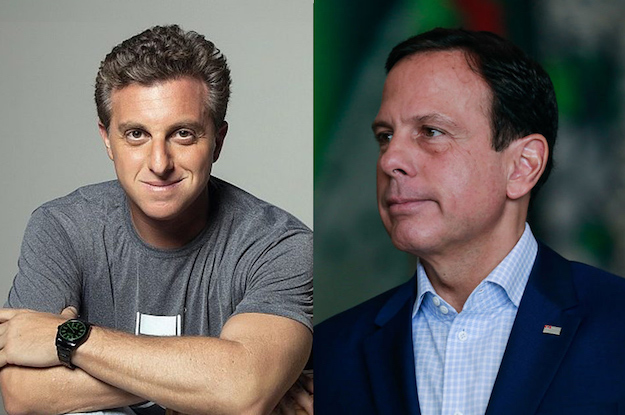Correction appended below.
SÃO PAULO – It is not surprising that many Brazilians eagerly followed the recent U.S. presidential elections – after all, President Jair Bolsonaro projects himself as a “Trump of the Tropics” and openly rooted for another Trump victory. When President-elect Joe Biden was declared victorious, it was only natural that numerous commentators in Brazil wondered which takeaways the U.S. election offered to the country’s opposition, eager to oust Bolsonaro in 2022.
Some lessons seem fairly straightforward: Biden, it was noted in Brazil, was sufficiently centrist and moderate to build a broad “democratic front”, stretching all the way from the center-right (such as the Lincoln Project) to the left (including Bernie Sanders and Alexandria Ocasio-Cortez) that, despite many internal disagreements, united around the sole purpose of defeating Donald Trump. Contrasting the U.S. president’s polarizing style and anti-establishment rhetoric, the Democrat represented a calm and almost tedious alternative, attractive to those who had grown tired of Trump’s non-stop provocations.
At first sight, emulating Biden’s strategy in Brazil seems like a good idea given the many similarities between Trump and Bolsonaro. Just like Biden benefited from Trump’s haphazard handling of the pandemic, Bolsonaro’s refusal to take the threat to public health seriously may come back to haunt him during his reelection campaign. The economy is unlikely to fully recover by 2022. After enjoying a brief spike in approval ratings due to cash transfer programs to millions of poor Brazilians during the pandemic, poverty will inevitably rise once the money runs out in the coming months. With Trump gone, Bolsonaro has not only lost his major ally and direct access to the White House, but will also face a far less benign international scenario, which is likely to increase the price of denying climate change and demonizing globalists and multilateralism, important to mobilize his most loyal supporters.
Furthermore, November’s municipal elections suggest that Brazilians are growing tired of Bolsonaro’s anti-establishment rhetoric. With few exceptions, mayoral candidates seeking to win elections in capital cities with the president’s blessing lost by big margins. Centrão parties, a conservative amalgam of politicians who symbolize Brazil’s “old politics”, won numerous cities. Upon winning reelection, São Paulo’s Mayor Bruno Covas (of the center-right PSDB party) echoed Joe Biden’s victory speech, saying it was possible to practice “politics without hate” and “there are no blue districts and red districts, there is only the city of São Paulo.” This is a message almost certain to be repeated by centrist challengers in the lead-up to 2022. “The anti-Bolsonaro front is taking shape,” Eliane Cantanhede, columnist at Estadão, celebrated.
Yet there are four reasons why Biden’s strategy, while surely inspiring, may be very difficult to reproduce in Brazil.
The first reason is structural: While the United States’ two-party system facilitated Biden’s effort to create a big tent and garner support from leftists, progressives, centrists and moderate conservatives once he won the primaries, Brazil’s more than two dozen parties and two-round electoral system constitute a big disincentive to unite around a single candidate at the beginning of the electoral process. During the municipal elections, opposition parties succeeded in building a broad anti-Bolsonaro alliance in some cities such as Fortaleza, where a center-right unity candidate handily beat his bolsonarista opponent. Others saw a coalition emerge at the run-off election such as in Rio de Janeiro, where center-right Eduardo Paes crushed far-right evangelical pastor and Bolsonaro ally Marcelo Crivella. Yet replicating such successes at the national level ahead of the first round of the presidential elections is extremely unlikely. Even with many moderates participating, a crowded field running against Bolsonaro could produce a run-off similar to 2018, when Bolsonaro faced the leftist Workers’ Party’s (PT) candidate Fernando Haddad.
Secondly, despite Bolsonaro’s bad showing at the municipal elections, the results point to widespread fragmentation that will make finding a unity candidate harder. A complete collapse of left-wing parties would have strengthened the case that a center-right candidate like São Paulo governor João Doria would be best to face Bolsonaro. But several run-offs in big cities were not between a center-right and a far-right candidate. Rather, numerous capitals, including São Paulo, Porto Alegre, Recife, Belém and Vitória, saw a center-left or left-wing candidate in the run-offs. Neither the weakened PT nor the emboldened PSOL (Socialism and Liberty Party) will accept someone like Doria as their candidate. Many people in both those parties still harbor a strong grudge against Ciro Gomes, who finished third in the 2018 presidential race, after he refused to campaign for Haddad in that year’s runoff.
A day after Biden was declared the winner in the United States, the newspaper Folha de São Paulo suggested that a meeting between center-right figures such as former judge and Minister of Justice Sérgio Moro, TV host Luciano Huck and Doria — all with presidential ambitions of their own — could be the starting point to lead a broad front against Bolsonaro. The backlash to that article — from both centrists and the left — was immediate. Rodrigo Maia, president of Brazil’s Congress, said he would never support a “representative of the far-right” like Sérgio Moro. Many argued that Moro’s role as Bolsonaro’s former minister of justice, Doria’s strong support for Bolsonaro during the 2018 elections, and Huck’s vow during the runoff to never vote, even reluctantly, for the PT, disqualified them from playing a unifying role. Indeed, they are unlikely to join a “whatever it takes” approach to oust Bolsonaro. It seems almost impossible to imagine any leading center-right figure supporting a center-left or left-wing politician in a run-off against Bolsonaro. Even within this group of potential “third way” candidates, personal ambition and specific disagreements in areas such as law enforcement — where Doria’s conservative approach differs strongly from Huck’s more progressive ideas — may very well keep them from coming together.
Third, it is near certain that Bolsonaro’s reelection campaign will not be shaped by his anti-establishment and anti-corruption rhetoric of 2018. Rather, he will most likely try to run as a traditional conservative candidate backed by centrão parties, enjoying the usual incumbency advantages. Historically, that comes handy when seeking reelection — Fernando Henrique Cardoso (1998), Luiz Inácio Lula da Silva (2006) and Dilma Rousseff (2014) won reelection, the latter at a time when Brazil’s economy had already fallen off a cliff. Bolsonaro’s move towards the center may complicate other center-right politicians’ attempts to distinguish themselves from the president, or gain centrão support during the campaign. That may be in Bolsonaro’s interest: his chances to win reelection are probably higher against a left-wing candidate than a conservative one.
Finally, around the world, populists with autocratic tendencies usually win reelection, as cases such as Viktor Orbán in Hungary, Rodrigo Duterte in the Philippines, Recep Tayyip Erdogan in Turkey and Hugo Chávez in Venezuela attest. Even in an economically difficult scenario, beating an incumbent who has few qualms about spreading falsehoods or undermining democratic institutions, and who is widely expected to question the result of the election if he loses, remains an uphill battle.
A previous version of this article misstated Huck’s position in the 2018 election








